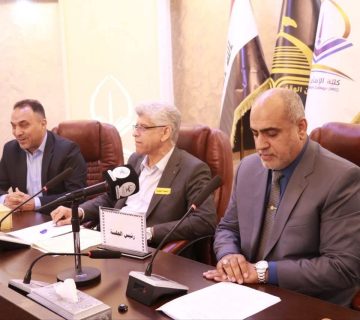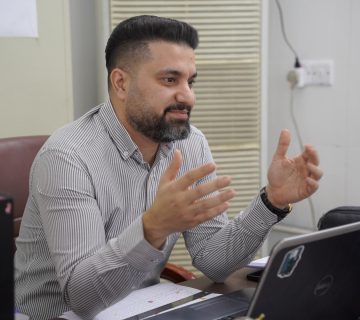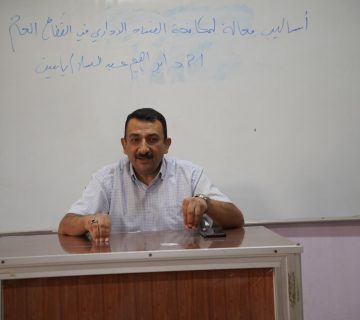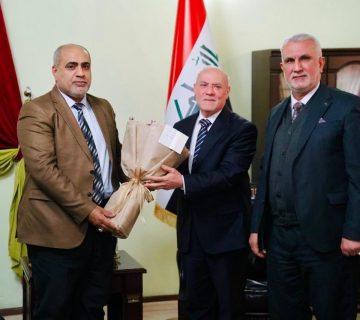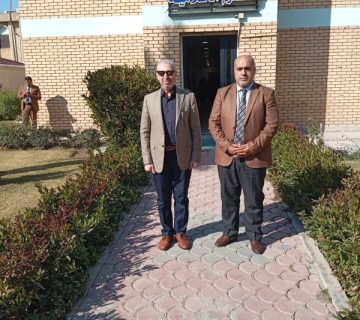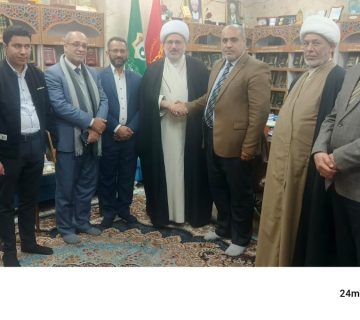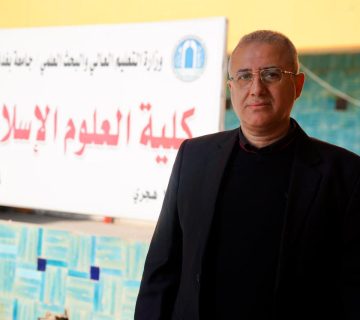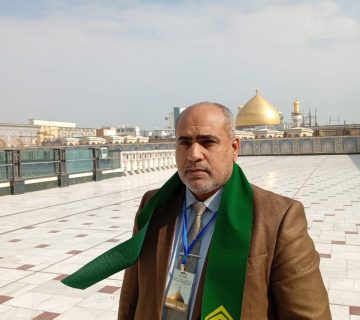The Scientific Affairs Unit of the College of Islamic Sciences, University of Baghdad, in cooperation with the Department of Islamic Civilization, organized a scientific symposium entitled “The Importance of Child Education in Arab Civilization” at the Cultural Hall.
The aim of the symposium, in which the assistant teacher Lamia Sahib Mashkoor and the assistant teacher Rabab Fakher Harfash lectured, was to raise the child in the Arab-Islamic civilization through studies in the Holy Qur’an, the Prophet’s Sunnah and the Arab heritage, and to create a generation of children in whose hearts faith and good deeds live in a way that secures morals and faithful community.
Mashkoor proceeded to present her lecture, which she started by emphasizing the importance of childhood, this period in which the child is prepared in order to become the man of the future, and the pillar of the nation. And I took from the Holy Qur’an and Arabic literature a material from which I drew meanings and ideas, during the days when the Arabs were in a nomadism, ease of behavior, spontaneity of thoughts, and well-established customs and traditions. Do you see how the Arabs managed to raise and discipline their children? Were the Arab women able to create the home environment and home climate suitable for the child, so that his environment would be able to form and prepare him?
Harfash presented a summary of child care in Islam, as the child needs this family affection in all stages of his development, hence Islam cared for the family and made it the place of residence, affection, mercy, clothing, love, and the place where the individual lives with the one he loves, as in the Almighty’s saying: {And among His signs is that He created for you wives from among yourselves, that you may find tranquility in them, and He placed between you affection and mercy.} [25]. And care and control, and considered the Holy Quran Money and children are the adornment of the life of this world, and this is considered one of the greatest blessings of God upon man
The symposium reached a set of recommendations that the two lecturers deem necessary, including that any cultural project whose goal is the child must be based on the foundations of the Islamic visions and symbols that shape our civilization and culture by deriving the Qur’anic approach in education and seeking guidance from the pure Sunnah and the Islamic heritage in guidance and education.




